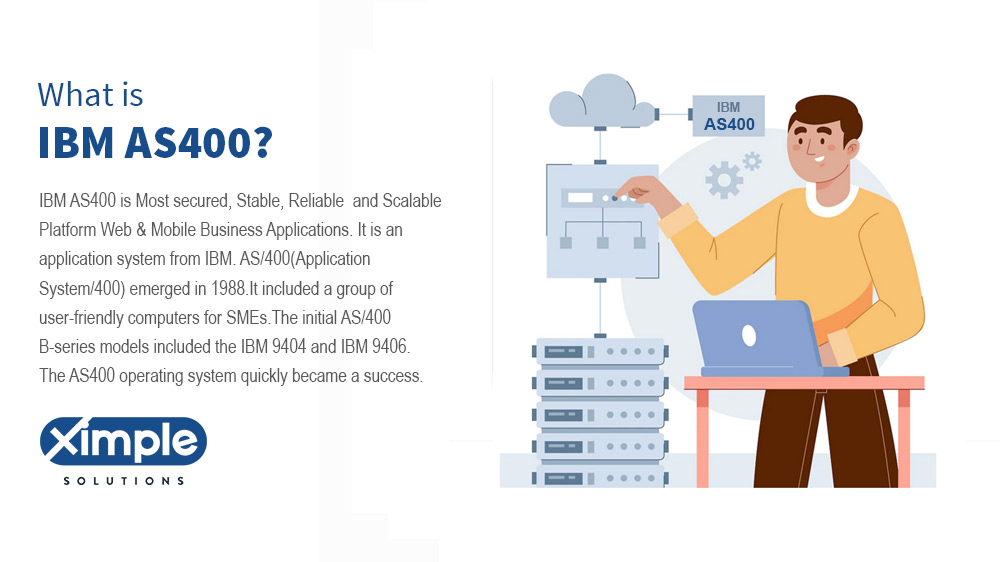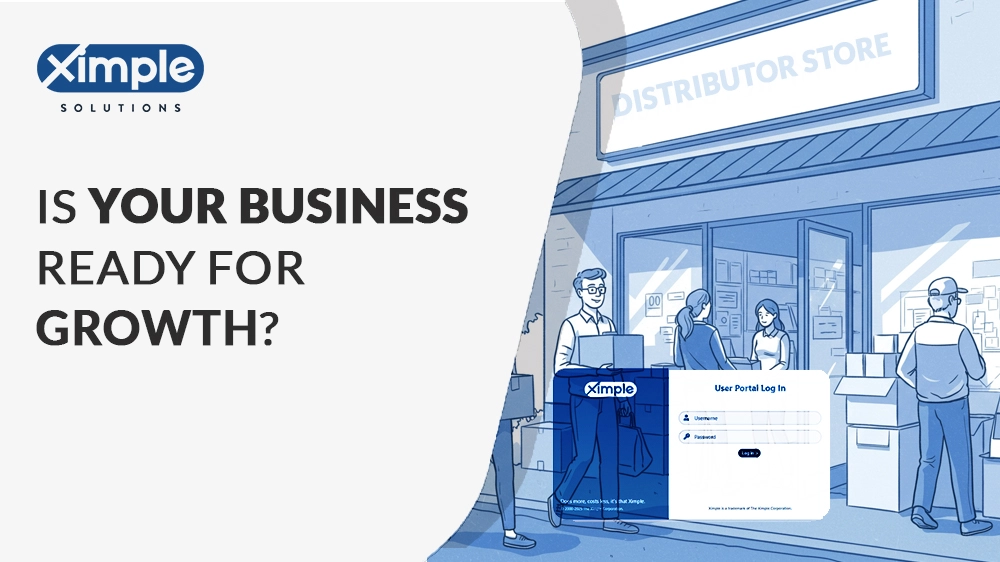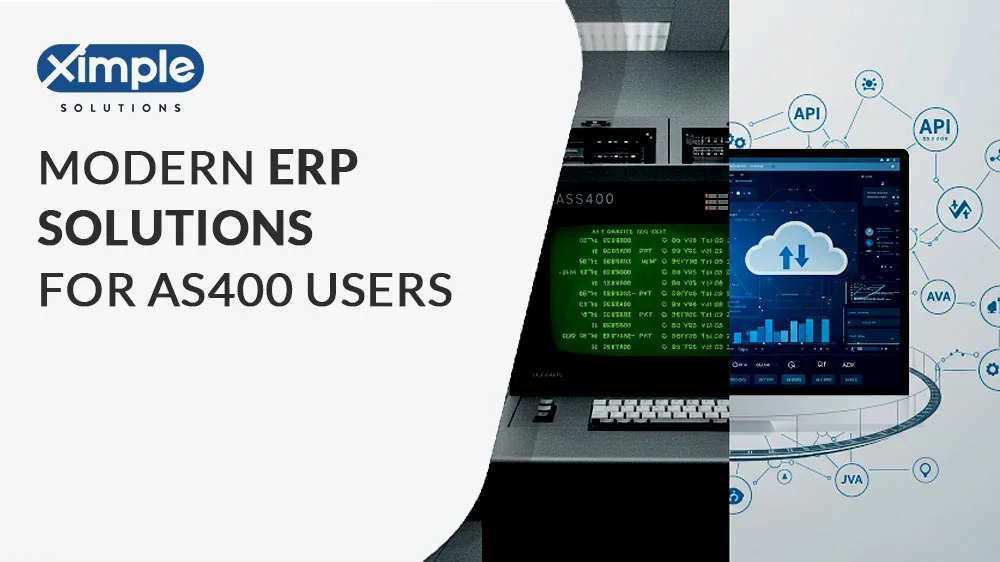What is an ERP Platform?
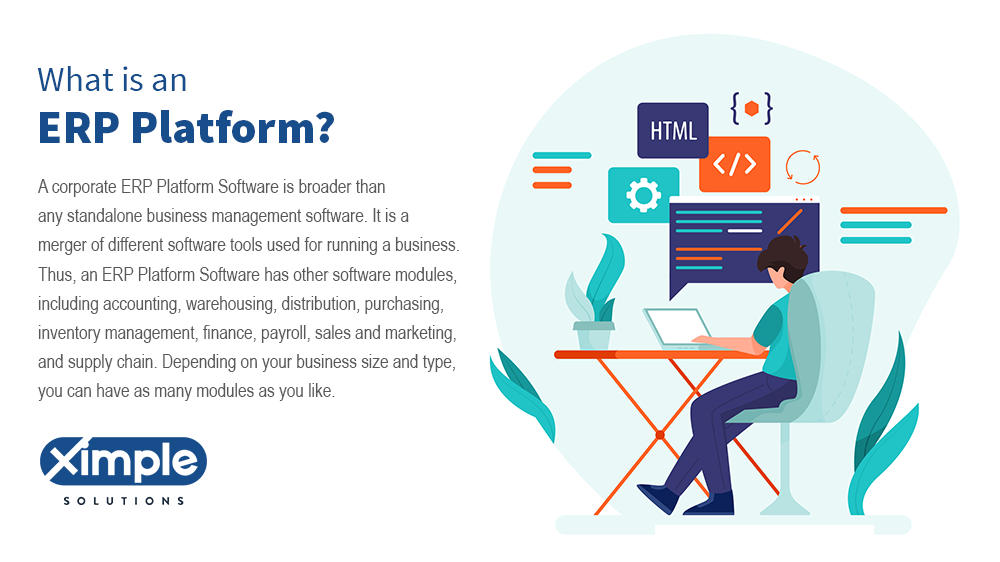
A corporate ERP Platform Software is broader than any standalone business management software. It is a merger of different software tools used for running a business. Thus, an ERP Platform Software has other software modules, including accounting, warehousing, distribution, purchasing, inventory management, finance, payroll, sales and marketing, and supply chain. Depending on your business size and type, you can have as many modules as you like.
The best ERP Platform software is customizable. So, you can add extra modules and features to it to ensure it meets all your business needs. The first ERP was developed in the 1960s, and in 1972, SAP made its first automated system. From the 1990s to 2021, the Software has mainly evolved, and many businesses have adopted it. Now ERP is on the cloud. ERP Platforms such as the Ximple Cloud ERP platform for wholesale distributors provide a unique competitive advantage by offering core distribution wholesale industry functionalities while offering open APIs and microservices to integrate with other systems with ease.
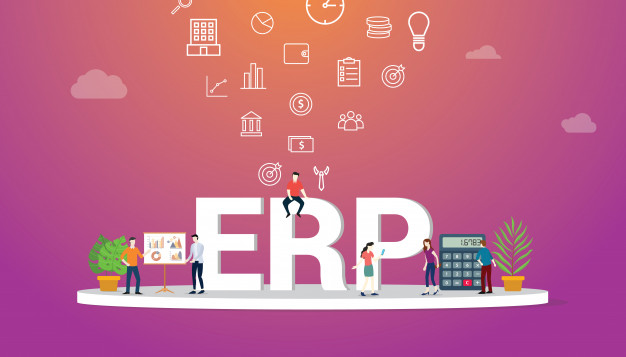
A corporate ERP system is broader than any standalone business management software. It is a merger of different software tools used for running a business. Thus, an ERP Platform has other software modules, including accounting, finance, payroll, sales and marketing, warehousing, CRM, and supply chain. Depending on your business size and type, you can have as many modules as you like.

The best enterprise resource management software is customizable. So you can add extra modules and features to it to ensure it meets all your business needs. The first ERP was developed in the 1960s, and in 1972, SAP made its first automated system. From the 1990s to 2021, the Software has mainly evolved, and many businesses have adopted it. Now ERP is on the cloud.
Table of Contents
- What is Cloud Computing Platforms for ERP applications?
- Open Source ERP Platforms
- ERP Software Platform Features
- ERP Platform Benefits
- ERP Platforms Challenges
- Small to Large Size Wholesale Distributors: Selection of ERP Platforms
- Global Wholesale Distributors: Selecting ERP Platforms
- Implementing ERP
What are Cloud Computing Platforms for ERP applications?
An ERP on a cloud platform refers to a system that is accessible on the internet anytime and anywhere. It is typically hosted online by the software provider, and they can offer it as a service you can purchase every month; it is primarily SaaS-based. A business requires a connection to the host’s web server.
A cloud-based platform provides real-time insights to all involved in the running of a business. All cloud ERPs offer core business functions plus others. It is hard to find an ERP software platform that does not have these modules:
- Finance and accounting.
- Human Capital Management
- Customer Relationship Management.
- Inventory Management.
- Warehouse Management System (WMS).
- Supply Chain Management.
- Order Management.
- Procurement.
- Project Management.
- Customer Relationship Management (CRM).
Many benefits follow when the wholesale distribution business implements cloud enterprise resource planning solutions. The immediate ones are that a software provider will manage the application totally from their end. They will make sure your application is hosted 24/7 and produce real-time security updates and feature upgrades. On-premise ERP software requires a business to use its skilled employee to maintain and upgrades the system.
Open Source ERP Platforms
These platforms are offered for free. They are the best when you want to use ERP business software but don’t have the capital to implement it. Software like SAP, Oracle, and Microsoft Dynamics are not for everyone. They are fantastic but too pricey for some upcoming businesses to afford. Ximple Cloud-based ERP is an excellent alternative to those companies if you are in the wholesale distribution business exploring Next Generation ERP software. Many companies need to use open-source ERPs if they do not have a software budget. Though they cannot offer all the features found in premium products, open-source options are better than none at all.
As most of these are downloadable web applications, anyone can use them. But, there should be a server to which you will install your open-source ERP platform. Support will come from either the active user community or an outsourced entity.
A list of Technologies for ERP Platforms
The following is a list of technologies that developers use in their ERP-based Software.
Options for databases include:
- Oracle SQL
- MSSQL
- PostgreSQL
- IBM DB2
Programming Options:
- Python
- PHP
- Java
- Ruby
- NET and ASP.NET.
Options for Frontend:
- Vue.JS
- JavaScript
- React
- AngularJS.
- PHP Frontend
ERP Software Platform Features
An ERP computer system should have certain features to perform well. A primary platform should at least offer the most critical business management modules. These are:
Accounting and finance
This module should support primary accounting roles like bookkeeping, cost accounting, and financial accounting. Thus, it needs to have Accounts Payable, Accounts Receivable, and a General Ledger. This module will be crucial to your accountant and financial analyst.
Human Capital Management module
This is all about the management of all expenditures that your workers generate. It should simplify your payroll issues.
This will depend on the kind of business you do. If you are a distributor, it is apparent that you run a warehouse. This module will simplify all warehousing activities.
Customer Relationship Management module
Without customers, any business is nothing. Thus, the best discreet ERP platform should have a module that can help customers track their shipments.
This module helps with stock management. When an item is out of stock, the Software can reorder it automatically.
Other modules you can add based on the business you run and its size include:
Sales and orders management
Compliance Management
Supply Chain Management
Marketing Management
Project Management
This module should support primary accounting roles like bookkeeping, cost accounting, and financial accounting. Thus, it needs to have Accounts Payable Accounts Receivable, and a General Ledger. This module will be crucial to your accountant and financial analyst.
ERP Platform Benefits
We have told you what ERP and ERP solutions are all about. Now you need to know the benefits of implementing these solutions. These include:
- High-quality customer care service and relationships because customers can now track their shipments live and leave feedback.
- A simplified business management role because all business processes are centralized and can be tracked and managed at once.
- Cloud-based ERPs lead to optimal business performance because users don’t have to be stuck in an office to access them. They only need their mobile internet device to see the status of the business processes they are responsible for.
- Human errors are significantly reduced, which boosts the productivity of the business and saves time. Time is a resource you can use where it is needed the most.
- Information is right in front of everyone using the Software. This can enhance communication and collaboration between employees and their managers.
- Enterprise resource planning ERP software leads to lower operating costs as it renders some human tasks redundant and not worth paying for.
ERP Platforms Challenges
Although the electronic resource planning tool sounds great, it’s not easy to implement. The main challenge that affects small and medium enterprises is the initial cost being too high. Other than that, businesses looking to implement this platform may experience these challenges:
- There are several phases during the implementation process, and each has a critical role. One sloppy action in a phase can destroy everything. Thus, forming an expert project management team is a challenge.
- The original implementation budget may fail to include essential software capabilities or features. If these are discovered late in the process, it can be expensive to add them.
- Gathering all data sources from various departmental records that need to be shifted to the new ERP computer system is complicated.
- Duplicated data errors can be a challenge when moving your older software systems’ information to the new Enterprise Resource Planning tool.
- Managing resistance to change among employees is a challenge as some of them may be reluctant to learn.
- If a business has an on-premise ERP platform, it can find it hard to do continuous software upgrades.
Small to Large Size Wholesale Distributors: Selection of ERP Platforms
Small, medium, and large-scale wholesalers still run various departments. Even those small enough to have an office for every business function must take care of finance, accounting, sales and marketing, procurement and purchasing, warehousing, inventory management, and so on. So they need ERP for enterprises to simplify each business function and increase their profitability.
As a small business, you should select an affordable, scalable, and user-friendly ERP. Whether it is bought or open-source Software, make sure it meets the needs of your small business. Medium and large-size businesses may have adequate capital to roll out the ERP software. They should focus on selecting the best software provider to avoid wasting time and money. This should be a stable software producer that can also provide periodic security updates and new software packages to upgrade.
Global Wholesale Distributors: Selecting ERP Platforms
Some wholesale distribution businesses begin small in one country. Due to upward growth, they moved to the neighboring nations and at last shifted operations to many countries worldwide. If you are running such a wholesale business, then one critical tool you need is a distribution ERP platform. You should assess it properly by first determining the features required by your company.
As yours is a multinational wholesale business, you need several business management modules in an all-ERP platform. To determine all the required features, you might have to consult a software provider directly. Some can offer a free analysis to assist you in creating a sensible budget plan.
Implementing ERP
Once you have decided on the ERP product you want to buy, the next step will be selecting ERP platform components and implementing them. The deployment process is usually long and complex, explaining why businesses need to choose one implementation approach that could work for them. Some decide to roll out the platform all at once, while others decide to do it in phases.
Other decisions that should be made concern the type of deployment process that best suits the company. Will it be cloud-based or on-premise? If you choose cloud-based, you will have to select among Software as a Service (SaaS), open-source cloud, or a privately hosted cloud service that you host or hosted by a designated entity.
FAQ
What is ERP, and how does it work?
Enterprise Resource Planning (ERP) is a multi-functional business management software tool. It consists of many modules, including accounting/finance, procurement, warehousing management, inventory management, human capital management, etc.
ERP modules for a company depend on its size, processes, and industry. For instance, a manufacturing company may need an ERP with project management, accounting, customer relationship management, inventory management, and professional services automation.
An ERP has a central data repository for storing real-time data. As a result, it provides better visibility across departments. Any authorized party seeking the truth can get insights from the central database.
How much does an ERP cost?
ERP cost does not just include the actual software purchase price. In addition, you must factor in the maintenance fees, the implementation cost, ongoing training cost, and software support cost. Working closely with an ERP vendor can help you distinguish various ERP costs. Also, some vendors will quote a price and expose hidden fees later.
Working with a reputable ERP vendor is imperative. Legacy ERP systems are costlier than cloud ERPs because they need to be in your office. Cloud ERPs stay in an online server, making them accessible anywhere. Moreover, cloud ERP vendors incur maintenance and upgrading costs while users meet subscription rates.
How to implement an ERP system?
ERP implementation is a technical exercise requiring adequate preparation. After finishing the long ERP selection process, your team should take the time to start the implementation process. Companies implement ERP in phases to end up with the desired result. No matter what, those spearheading the operation should do the following:
- Involve all users – Every person who will use the new ERP systems should be part of its implementation procedure. This is an effective way of avoiding resistance to change and boosting software acceptance.
- Understand the business goals – Each company has strategic goals it can achieve faster with ERP software. Before implementing ERP, a business should know what it wants from the software.
- Determine the project timeline – An ERP implementation process will take time to end. All in all, your team should estimate the correct deadline. As the team needs adequate time for training users and testing the system, choose an extended deadline.
What is an example of an ERP system?
- Netsuite – This ERP is a comprehensive system based on the cloud. It is ideal for managing all your business management tasks, including inventory, warehousing, accounting/finance, sales order, procurement, customer relations, etc. It is among the best software tools for automating your entire supply chain as it provides real-time visibility. Netsuite will automatically compute your stock levels and other affairs even if you have many branches.
- Microsoft Dynamics – Microsoft Corporation is the provider of Microsoft Dynamics software. There are ERP options for small and medium enterprises, including NAV, SL, and NAV. Their AX software is the primary choice for enterprises. No matter your preference, Microsoft Dynamics will drive performance with its AI-based tools, boost operational efficiency, and make your business more agile.
- Ximple solution (wholesale distributors) – This is your ultimate ERP solution if you are a wholesale distributor. It spans different industries and enables you to run all your business channels with one license. It has all the necessary modules you need depending on your industry. Whether you want to shift to a more capable ERP system or need to invest in this for the first time, Ximple Solution is the best SaaS-based platform.
You can also consider a Hybrid ERP system, which offers a variety of deployment and hosting options. An On-premise ERP implementation allows you to install the software on your own servers and manage it internally. However, it lacks many of the advantages provided by a cloud-based ERP system, such as greater scalability, flexibility, and cost-efficiency.

